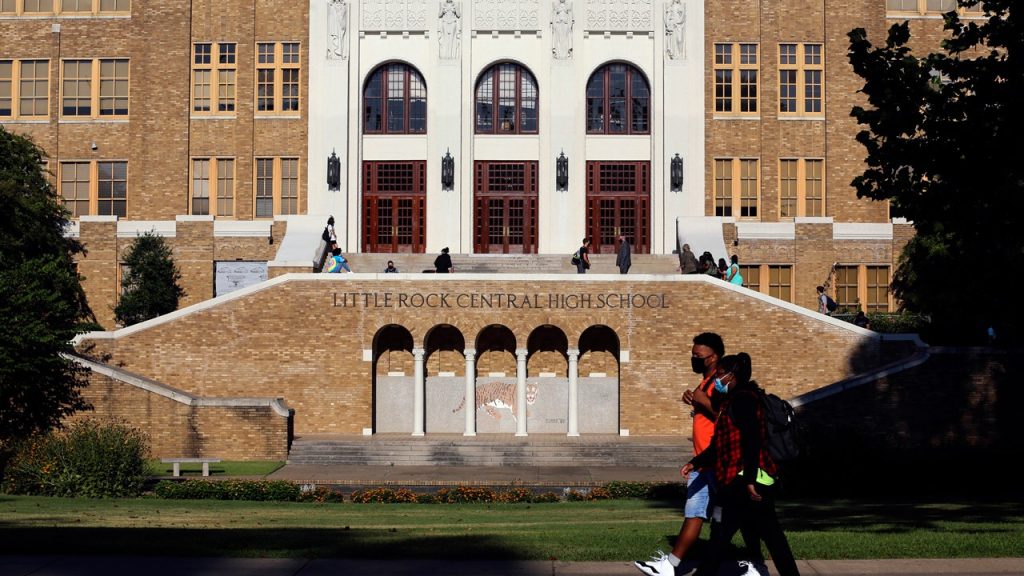A federal judge in Arkansas has ruled that the state cannot prevent two high school teachers from discussing critical race theory in the classroom, but he did not broadly block the state from enforcing its ban on “indoctrination” in public schools. The ban is part of an education overhaul signed into law by Republican Gov. Sarah Huckabee Sanders. The prohibition is being challenged by two teachers and two students at Little Rock Central High School, which was the site of the 1957 desegregation crisis.
The ruling issued by U.S. District Judge Lee Rudofsky allows teachers to teach, mention, or discuss critical race theory without fear of disciplinary action. However, the ruling prohibits teachers from compelling students to accept the theory or grading them based on whether they accept or reject it. The judge’s decision provides comfort to teachers across the state that they are not prohibited from teaching about or using critical race theory or any other theory, idea, or ideology in their classrooms as long as they do not force students to accept it as valid.
Attorneys for the teachers and students who filed suit welcomed the ruling as an initial victory in ongoing litigation over the state’s ban on indoctrination in public schools. They believe that the ruling has essentially gutted the law to render it virtually meaningless. Republican Attorney General Tim Griffin countered that the ruling only prohibits actions that the state was not doing in the first place and does not prevent teaching important historical topics like segregation, the civil rights movement, or slavery.
The lawsuit originated from a decision by the state that an African American Studies Advanced Placement course would not count toward state credit during the 2023-2024 school year. The teachers argue that the ban is too vague and forces them to self-censor what they teach in order to avoid violating it. Arkansas is one of several Republican-led states that have implemented restrictions on how race is taught in the classroom, including bans on critical race theory. Tennessee educators have filed a similar lawsuit challenging sweeping bans on teaching certain concepts of race, gender, and bias in classrooms.
Overall, the ruling by Judge Rudofsky allows teachers in Arkansas to continue discussing critical race theory in the classroom without fear of disciplinary action, providing reassurance to educators across the state. The decision was seen as an initial victory for the teachers and students challenging the state’s ban on indoctrination in public schools, with attorneys representing them expressing confidence in the ongoing litigation. The lawsuit originating from the state’s decision not to count an African American Studies course for credit highlights the issue of vague bans that may force teachers to self-censor their teaching materials. Arkansas’ restrictions on teaching race in the classroom are part of a broader trend among Republican-led states, with ongoing legal challenges in Tennessee and other states.


